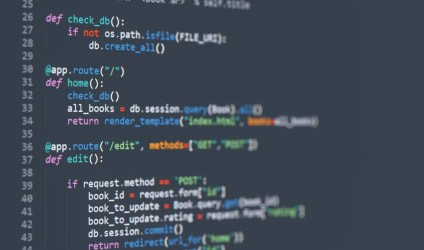
Unleashing Creativity through Practical Learning
In the realm of programming education, the traditional approach of rote learning syntax and theory is gradually giving way to a more hands-on method. Learning programming through projects has emerged as a powerful strategy that not only imparts technical skills but also nurtures creativity and problem-solving abilities.
The Project-Based Learning Advantage
Project-based learning (PBL) immerses aspiring programmers in real-world scenarios, prompting them to apply their theoretical knowledge to practical situations. By engaging in projects, learners gain a deeper understanding of coding concepts and develop the critical thinking skills required to tackle complex challenges.
Building a Strong Foundation
One of the key benefits of learning programming through projects is the establishment of a solid foundation. Instead of memorizing syntax in isolation, learners work on projects that demand the application of coding principles. This approach reinforces understanding and ensures that knowledge is retained for the long term.
Fostering Problem-Solving Skills
Programming projects inherently present challenges and roadblocks that require problem-solving skills to overcome. This aspect of PBL not only enhances technical proficiency but also cultivates resilience and adaptability—essential qualities for any successful programmer.
Bridging the Gap between Theory and Application
Traditional programming courses often struggle to bridge the gap between theoretical knowledge and its practical application. Projects act as a natural bridge, enabling learners to see the direct impact of their code and reinforcing the importance of concepts learned in the classroom.
Diverse Project Opportunities
From creating web applications and mobile apps to designing games and implementing automation scripts, the spectrum of programming projects is vast. This diversity allows learners to explore various domains and find their passion within the vast landscape of programming.
Nurturing a Coding Mindset
Learning programming with projects not only imparts technical skills but also nurtures a coding mindset. This mindset encompasses a logical and systematic approach to problem-solving, an essential attribute for any programmer navigating the intricacies of software development.
Interactive Learning Environments
Projects often involve the use of integrated development environments (IDEs) and collaborative tools, providing learners with practical experience in industry-standard workflows. This exposure to professional tools enhances their readiness to enter the workforce with a skill set aligned with industry expectations.
Cultivating Creativity in Code
Programming projects offer a canvas for creativity. Whether it’s designing user interfaces, implementing innovative features, or optimizing code for efficiency, learners have the freedom to express their creativity. This aspect makes the learning journey enjoyable and fulfilling.
Learn Programming with Projects: A Guided Approach
For those eager to embark on a journey of learning programming through projects, a valuable resource can be found here. This link offers a guided approach, providing tutorials, tips, and insights to help learners make the most of their project-based learning experience. With a wealth of information and practical guidance, it serves as a compass for navigating the exciting landscape of programming education.
This article explores the transformative power of learning programming through projects, shedding light on the benefits, skills acquired, and the link between theory and practical application. It emphasizes the diverse opportunities projects offer and encourages aspiring programmers to embrace a project-based learning approach.
